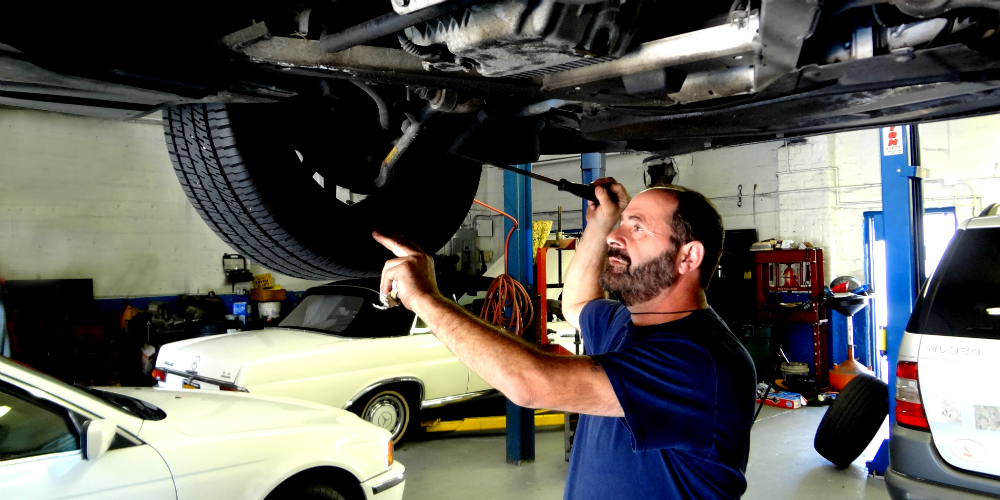All Categories
Featured

Your automobile's battery is among one of the most essential parts for a trusted driving experience. It provides the power required to start your car and runs numerous of your automobile's crucial features. Like all vehicle components, batteries don't last forever and can lose their strength over time. Knowing just how to inspect your cars and truck's battery health can conserve you from unforeseen breakdowns and ensure your cars and truck remains to begin smoothly every single time. In this overview, we'll walk you through some basic steps to examine your vehicle's battery health and wellness.
Indicators Your Auto Battery Might Be Failing. Prior to diving into how to check your car's battery health, it's important to recognize the indication that your battery could be nearing completion of its life. Right here are some common signs:
Slow Engine Crank: If your car is sluggish to start or the engine takes longer to crank than typical, your battery might not be providing sufficient power. Dim Lights: Dimming headlights or indoor lights, specifically when starting the cars and truck, is another sign that your battery may be losing power. Check Battery Light: If you see the check battery light on your control panel, it might show that the battery is weak or there's an issue with the charging system. Corrosion on Battery Terminals: A build-up of rust around the battery terminals (usually a white, grainy substance) can hinder the battery's connection, leading to efficiency concerns. Old Age: Auto batteries commonly last between 3 to 5 years. If your battery is older than that, it may be time to examine its health and wellness. If you observe any of these symptoms, it's a good concept to evaluate your battery's health and wellness to establish if it requires replacement.

Exactly How to Examine Your Cars and truck's Battery Wellness. Visual Inspection:. Examine for leakages, splits, or bulging, which could show that the battery is overcharged or faulty. Examine the battery terminals for corrosion, which can conflict with the battery's ability to bill and discharge correctly.
Inspect the Battery Voltage:. One of the best means to check your battery's health is to determine its voltage. You can do this making use of a multimeter (readily available at most vehicle components stores) Here's how to do it:
Turn off your cars and truck and make sure that all electronics (lights, radio, etc) are off. Establish your multimeter to DC voltage (V) and select a variety of 20. Connect the multimeter's red probe to the favorable (+) incurable and the black probe to the negative (-) incurable on the battery. A healthy and balanced, fully billed battery should read around 12.6 volts. If the voltage is listed below 12.4 volts, your battery is weak and may need recharging or changing. If it's below 12 volts, the battery is likely failing. Do a Load Test:. A lots examination helps figure out just how well the battery does under stress. This test is normally done by a specialist technician, however you can perform a straightforward variation in the house if you have a battery lots tester. Here's how:
With the car off, measure the voltage as you performed in the previous action. Begin the cars and truck and gauge the voltage again. If it goes down significantly when the engine starts, this could suggest that the battery isn't holding a fee properly. You can likewise examine how well the battery powers devices (like lights or cooling) while the automobile is running. If they flicker or act erratically, it could indicate a falling short battery. Evaluate the Charging System:. If the battery appears great, however you're still experiencing concerns, it might be a problem with the alternator or the billing system. To test this:
With the cars and truck operating, gauge the voltage at the battery terminals once again. An effectively operating alternator ought to generate a voltage of 13.7 to 14.7 volts. If the voltage is below this array, the alternator might not be charging the battery appropriately, which can lead to battery failure. When to Change Your Automobile's Battery. If you have actually performed the checks mentioned above and your battery is still underperforming, it may be time for a substitute. Furthermore, if your battery is greater than 3 years old and has actually revealed indications of deterioration, it's often a great idea to replace it before it fails entirely.
A brand-new battery is vital for ensuring dependable lorry performance, specifically in severe climate condition where battery power can be influenced. If you're uncertain about the results of your battery health check, consider going to a professional technician that can carry out a much more thorough diagnostic.
Conclusion: Routine Battery Upkeep Is Key. Your vehicle's battery is important for its general performance, and normal maintenance is crucial for maintaining it in top condition. By examining your battery's health and watching on the common signs of failing, you can protect against unexpected problems and ensure your car starts dependably every time. Regular evaluations and simple tests are the very best methods to expand the life of your cars and truck's battery and prevent inconvenient break downs. Do not wait on the battery to fail-- take aggressive actions to check its health and change it as needed.
Latest Posts
Discover Exclusive Auto Repair Specials in Chicago at Montclare Auto Repair
Uncover Reduce Expenses on Car Maintenance with Montclare Auto Repair’s Limited-Time Deals
How Regular Vehicle Maintenance at Montclare Auto Repair Saves You Money
More
Latest Posts
Discover Exclusive Auto Repair Specials in Chicago at Montclare Auto Repair
Uncover Reduce Expenses on Car Maintenance with Montclare Auto Repair’s Limited-Time Deals
How Regular Vehicle Maintenance at Montclare Auto Repair Saves You Money
